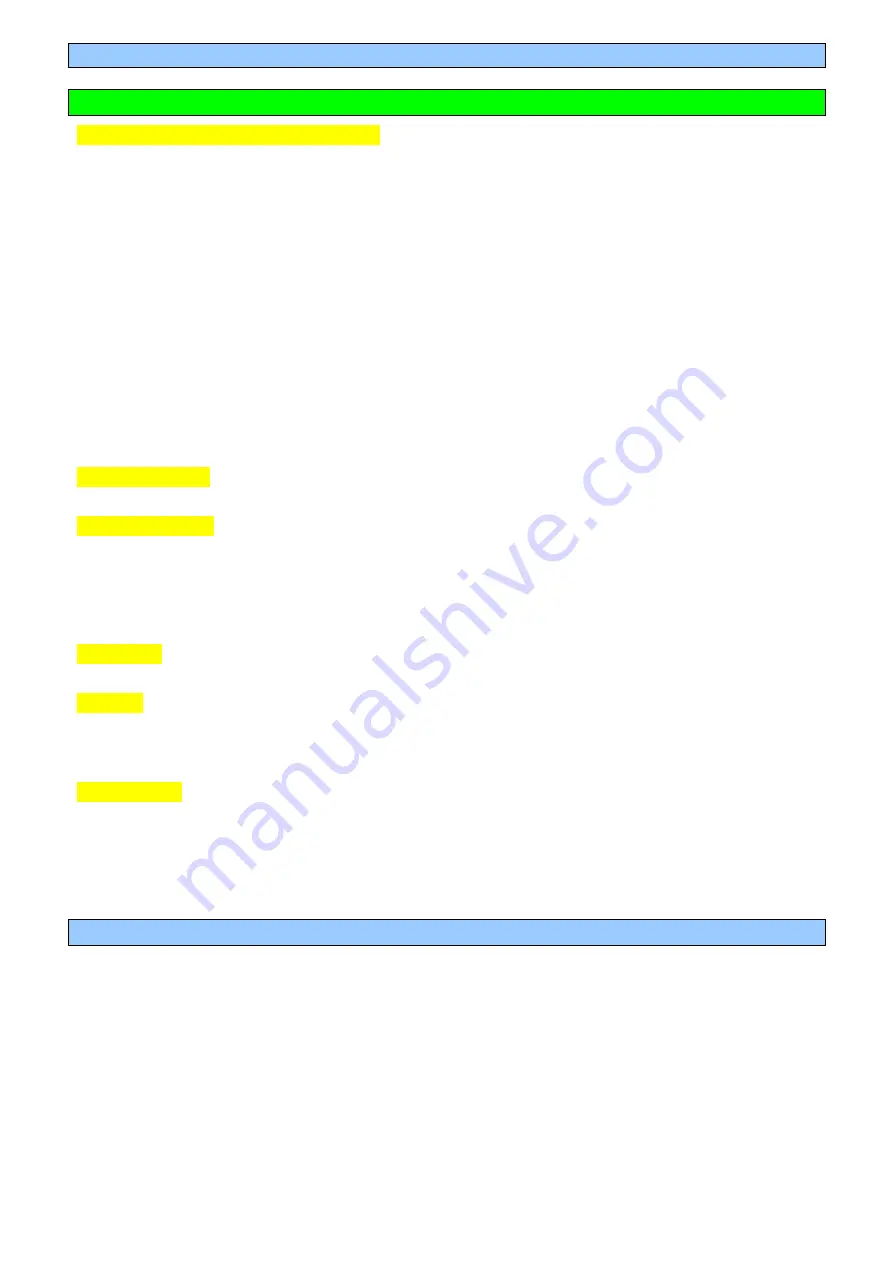
33 SAFETY AND UTILITY NOTICES
PLEASE; CONTACT US IMMEDIATELY REGARDING ANY PROBLEM OR ANOMALY
STUD INSTALLATION AND REMOVAL
Please, take extreme care when removing and substituting any stud.
Typically use:
Loctite 270
(soft Loctite) for suspension brackets, brake callipers
Loctite 242
(hard Loctite) for chassis, gearbox, bell-housing, roll hoop
Most studs are mounted with loctite and do require a proper installation procedure
- Clean the hole from dust, debris, oil etc
- Drive a screw tap to remove machining residuals
- Clean the hole with brake cleaner and dry with compressed air
- Pre-assemble the stud without Loctite to check its position and remove again
- Clean the hole again with a degreaser and dry with compressed air
- Coat the hole with Loctite
- Install the stud
- Tight the stud with the recommended tightening torque. You can do so by using a pair of nuts
locked against each other.
Stud tightening torques: M5: M6: M7: M8: M10:
TRANSMISSION
•
to prevent the drive-shaft bolts from loosing, fit them with LOCTITE 242;
AERODYNAMICS
•
do not remove from high- and mid-downforce rear top wing assembly the small profile for use as
rear low downforce wing because these are not reinforced. Use the specific wing profile, available
at Dallara;
•
when running the car with a rear ride height of 40mm or more, check the height of the rear wing
endplate. Total height cannot exceed 900mm.
STEERING
steering rack-end rod ends must absolutely get replaced after crashing;
CLUTCH
When using a thicker than F3 typical AP twin-plate metal clutch (i.e. carbon clutch…), check that the
clutch piston can move backwards enough to release the clutch completely. You can shorten the
clutch piston spacer by turning off the required amount.
WISHBONES
Never lift up the car gripping the middle of the wishbones. Never sit or stand on any wishbone.
SUSPENSION
•
check wheel stud to inner hub tightening in front and rear uprights. You can notice if the lock-nut
did come loose by observing relative displacement of two red notches on the lock-nut and on the
spigot
•
check, every 1000 Km, lower pin lock-nut of front upright to prevent from coming loose
•
after any accident, check alignment of front and rear push-rods and their respective adjusters
•
wishbones are treated with PARCO-LUBRITE. Clean the surface with acetone before inspection
•
check periodically the tightening of the K-nuts which fixes the drop links on the rear anti roll bar
blades.
Summary of Contents for F305
Page 3: ...3 SIDE TOP VIEW OF THE F305...
Page 12: ......
Page 27: ...27 HUB ASSEMBLY FRONT HUB REAR HUB...
Page 37: ......





































